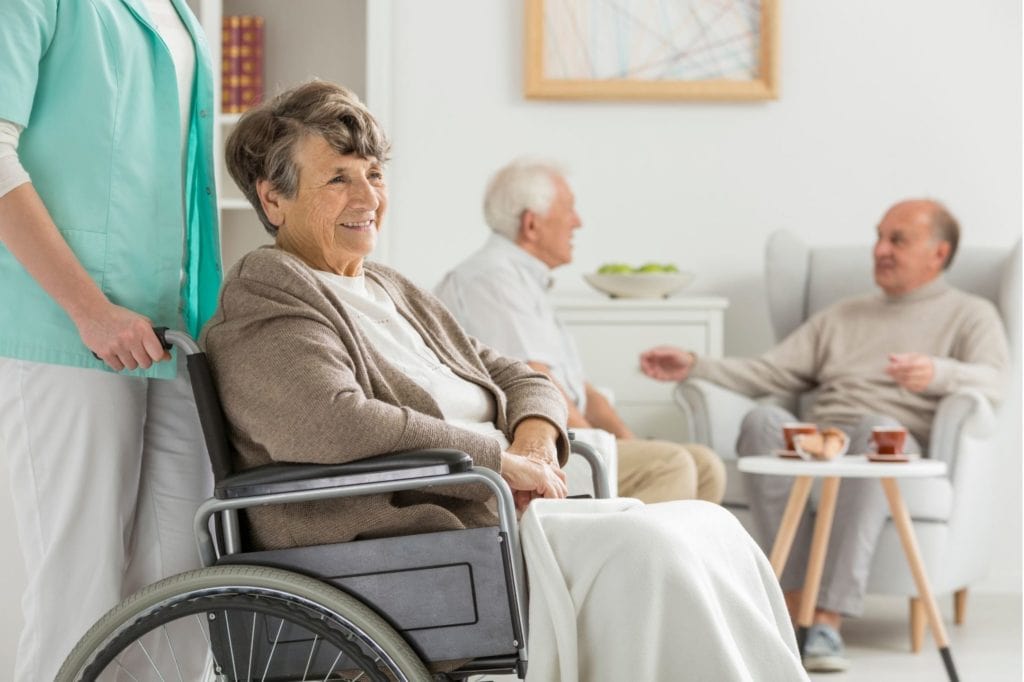
Signs A Loved One Needs Residential Care
February 12, 2021
Supporting Families Who Can’t See A Dying Loved One
February 17, 2021Recognize Non-Verbal Pain Cues
Hospice care exists in order to improve a person’s quality of life. Key to this is managing pain. Pain affects more than physical comfort. It damages people emotionally and can even harm their relationship with their family as well. Therefore, it is important that caregivers and hospice workers respond to pain as quickly as possible. However, many end-of-life issues impair the ability to speak, which is why it is important caregivers be able to recognize non-verbal pain cues.
Acute pain vs. chronic pain
There are two types of pain: acute and chronic. Acute pain has a specific and obvious cause, such as stubbing your toe. It typically fades quickly once it has been treated, though sometimes it can linger.
Chronic pain, on the other hand, is constant, caused by an underlying condition that cannot be easily cured. It is so debilitating that, in most cases, it affects almost every aspect of a person’s life. Sometimes, patients struggle with the pain for so long, they cannot even properly register it anymore. It comes at them from everywhere, an irritating stimulus with no focal point.

How to recognize non-verbal pain cues
Most non-verbal pain cues are easy to identify. Look for:
- Grimacing, Pursed Lips, Furrowed Brow, Wrinkled Nose, Clasped Eyes
- Moaning, Yelling, or Crying
- Jaw Tightening
- Grinding Teeth
- Clenching Fists or Blankets
- Flinching
- Rapid or Unusual Breathing
- Limping
- Tense or Rigid Muscles
- Clutching or Guarding a Specific Part of the Body
One of the most serious symptoms is difficulty sleeping. If not caught it can create a vicious cycle. Poor sleep exacerbates chronic pain, which leads to less sleep and more pain.
Monitoring appetite is another way to recognize non-verbal pain cues. As chronic pain grows worse, people become nauseated and stop eating. As a result, rapid weight loss may be an urgent sign a loved one is in distress.
Behavior issues
Pain has a serious effect on people’s behavior as well. For example, in many cases, pain causes anxiety. Visible symptoms include restlessness, fidgeting, writhing, and panic attacks. Patients may also start pulling at their clothing, like they were trying to undress, or attempt to jump out of bed.
Pain also makes people withdrawn. Whereas before they may have been able to get up, shower, dress, or perhaps even go for a walk, now they only want to lay in bed.
Memory problems make behavior issues even worse. In these cases, the patient may lash out or become combative when their caregivers try to touch them or move them. This is purely reactive. Because they cannot state their feelings, lashing out might be the only way to communicate when something you do upsets them. They are distressed, but cannot identify the cause, so the pain will likely increase their confusion until it is treated.

Treating pain in non-verbal patients
For hospice patients, pain is normally treated with medication. There is a misunderstanding about the goal of medication in this situation. It is not given in order to put the patient to sleep, but to improve their quality of life and allow them to be happy in the time they have left.
For non-verbal patients, caregivers play an essential role in pain management. The closer they are to a patient, the easier it is for them to recognize non-verbal pain cues. For instance, if they notice a patient is more anxious and combative when they try to shower them, the caregiver can report the behavior to the doctor in order to begin a pain regimen.
Caregivers and hospice workers are also the only ones in a position to assess how well the medication is working. Is the patient functional again? Are they able to get out of bed? Are they eating? What is their mood? How long does it take for symptoms to re-emerge? This type of firsthand knowledge tells the doctor whether the patient should remain on the same medication, whether the patient needs a larger dose, or if they should be switched to a longer-lasting drug.
Under those circumstances, it is essential the caregiver be able to read the patient’s behavior. The closer their relationship, the more likely it is they will receive effective relief.
Why it is important to recognize non-verbal pain cues
Not every patient with a life-limiting illness experiences pain. Many remain verbal, awake, and alert. Unfortunately, however, when an illness impairs a patient’s ability to communicate, it is crucial that caregivers and hospice workers be able to recognize non-verbal pain cues. Their attention is essential to protecting the patient’s comfort and dignity.
Jose Escobar is the Hospice Executive for Parentis Health. He works with patients and families across Southern California, providing support and education, in order to alleviate the pain and suffering of chronic and terminal illness.

